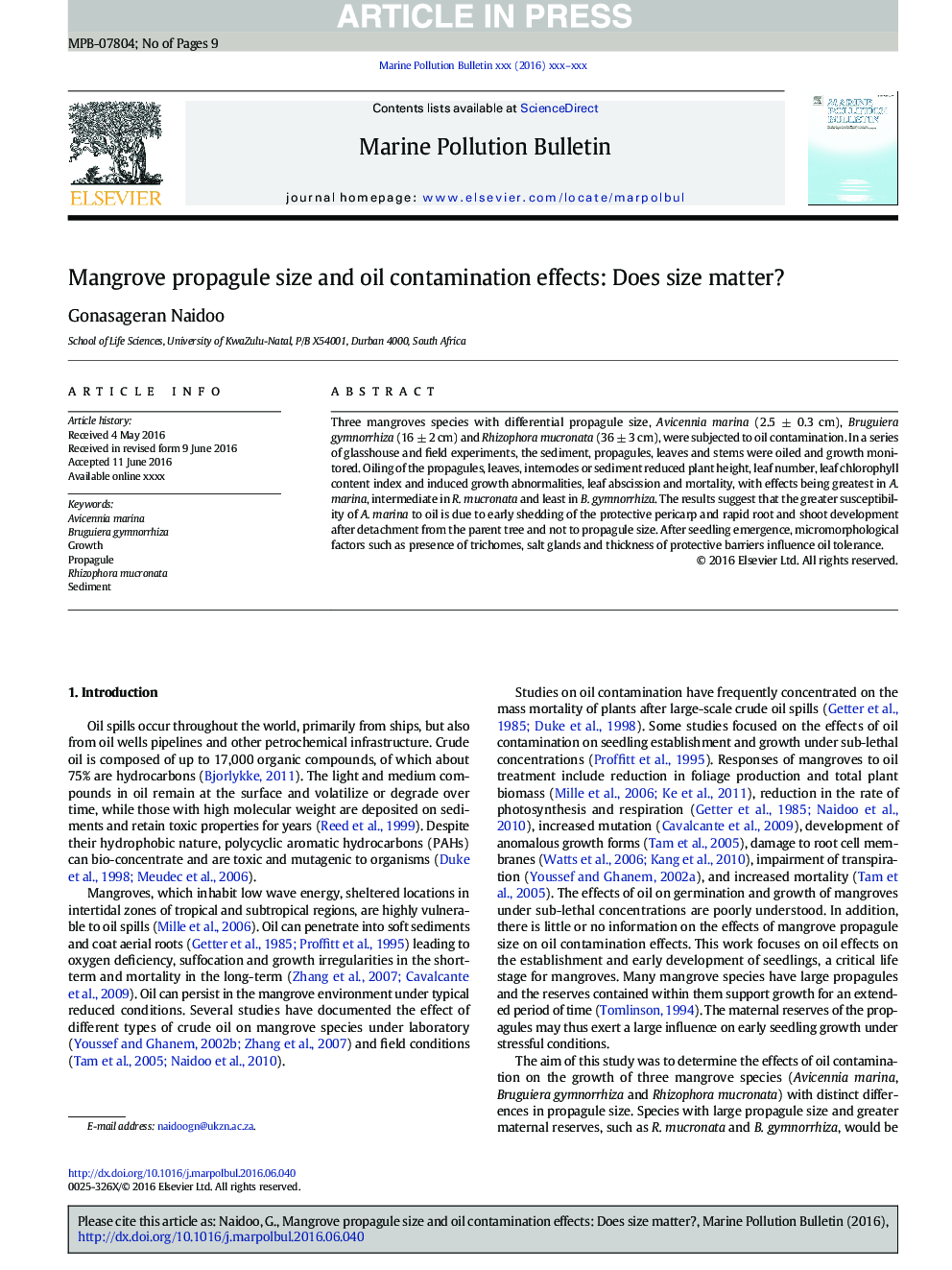| Article ID | Journal | Published Year | Pages | File Type |
|---|---|---|---|---|
| 6355696 | Marine Pollution Bulletin | 2016 | 9 Pages |
Abstract
Three mangroves species with differential propagule size, Avicennia marina (2.5 ± 0.3 cm), Bruguiera gymnorrhiza (16 ± 2 cm) and Rhizophora mucronata (36 ± 3 cm), were subjected to oil contamination. In a series of glasshouse and field experiments, the sediment, propagules, leaves and stems were oiled and growth monitored. Oiling of the propagules, leaves, internodes or sediment reduced plant height, leaf number, leaf chlorophyll content index and induced growth abnormalities, leaf abscission and mortality, with effects being greatest in A. marina, intermediate in R. mucronata and least in B. gymnorrhiza. The results suggest that the greater susceptibility of A. marina to oil is due to early shedding of the protective pericarp and rapid root and shoot development after detachment from the parent tree and not to propagule size. After seedling emergence, micromorphological factors such as presence of trichomes, salt glands and thickness of protective barriers influence oil tolerance.
Related Topics
Physical Sciences and Engineering
Earth and Planetary Sciences
Oceanography
Authors
Gonasageran Naidoo,
